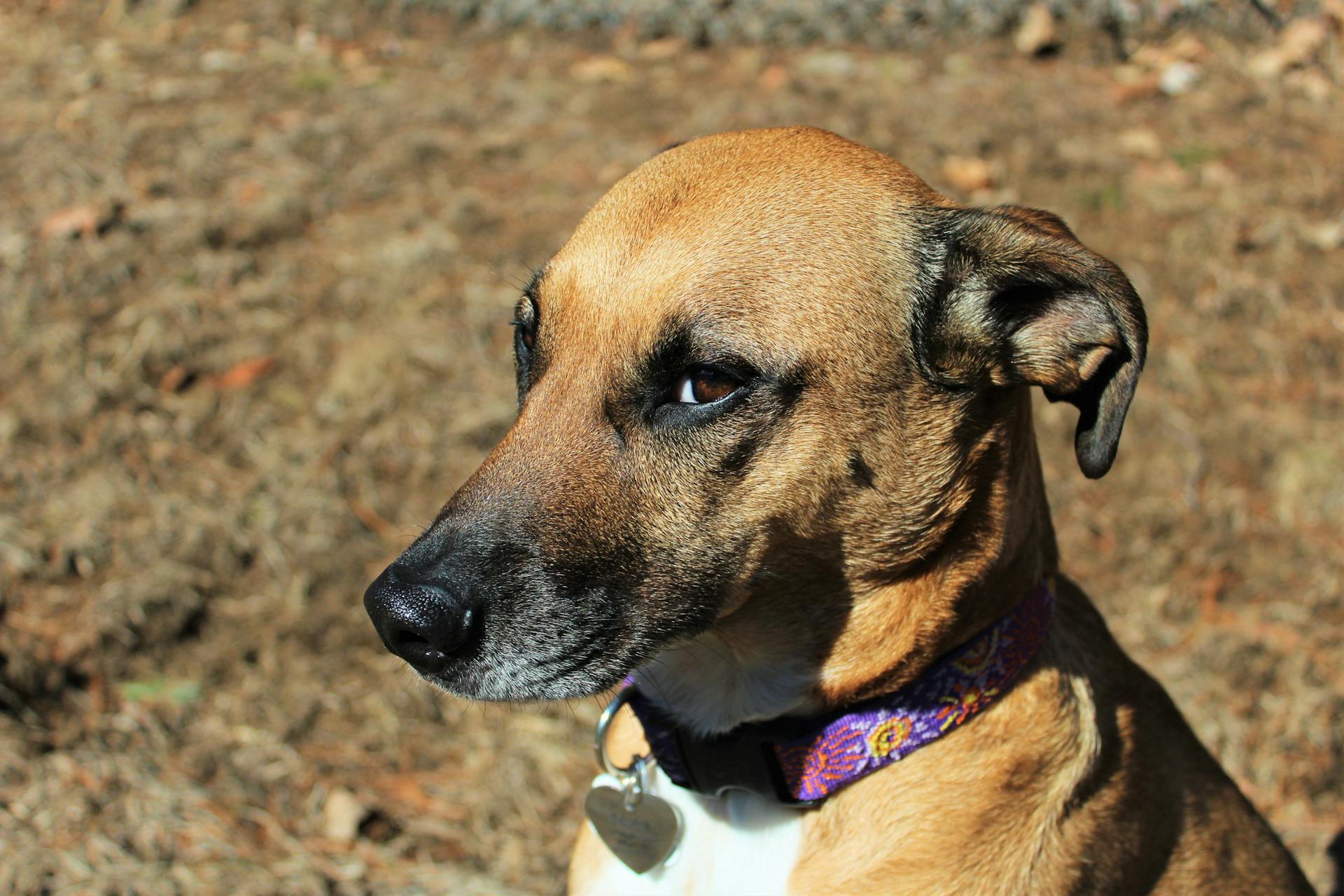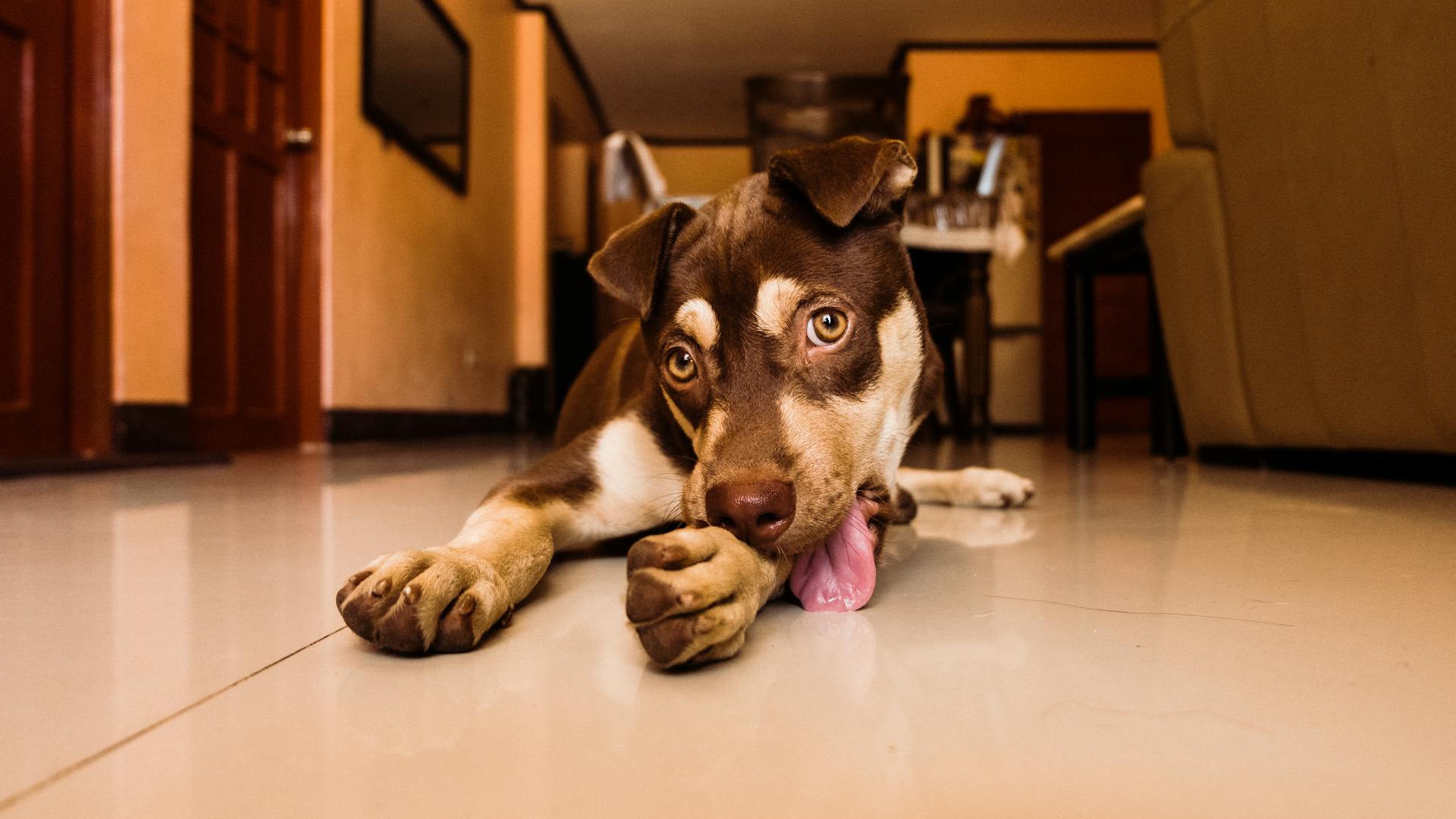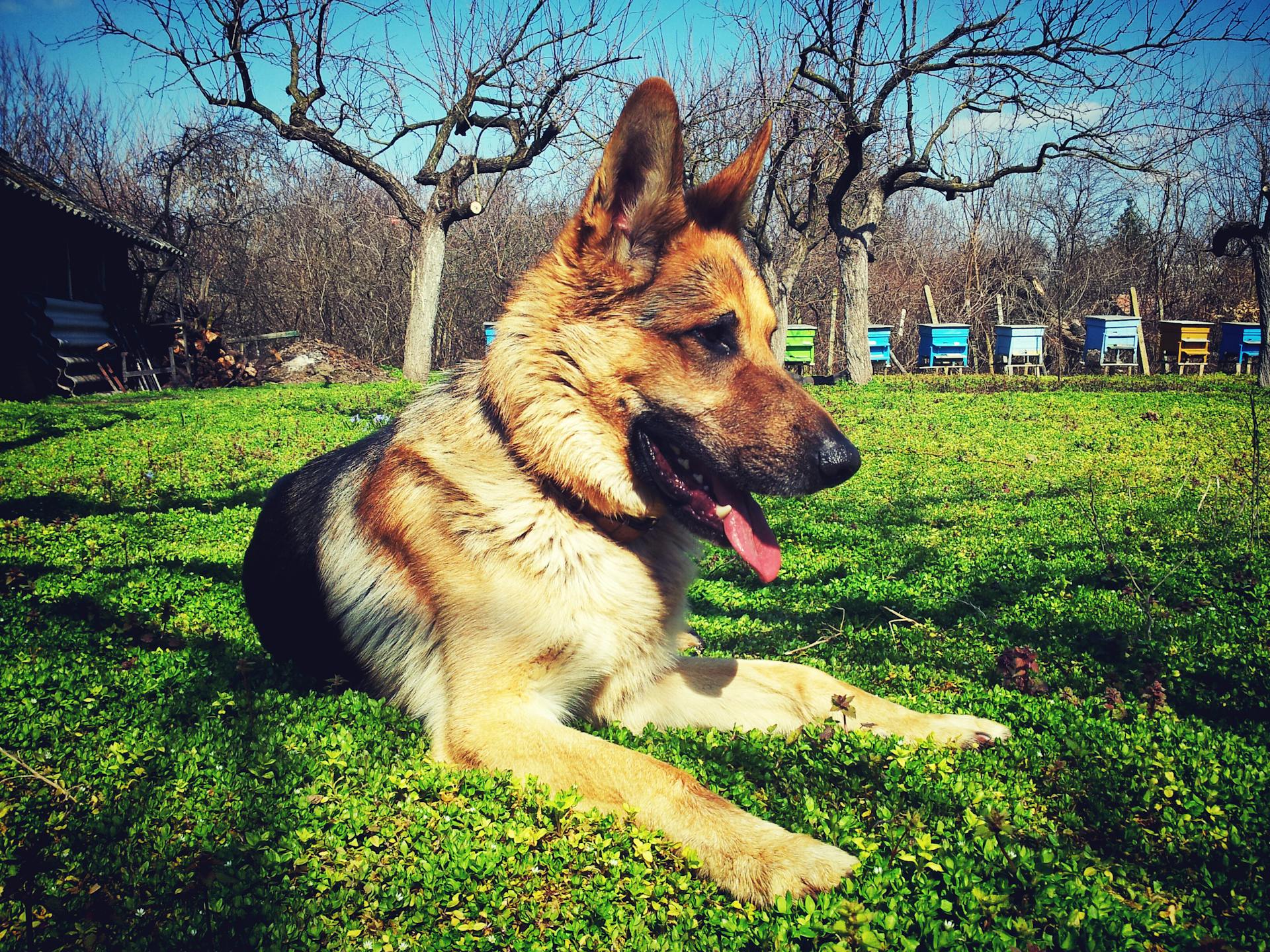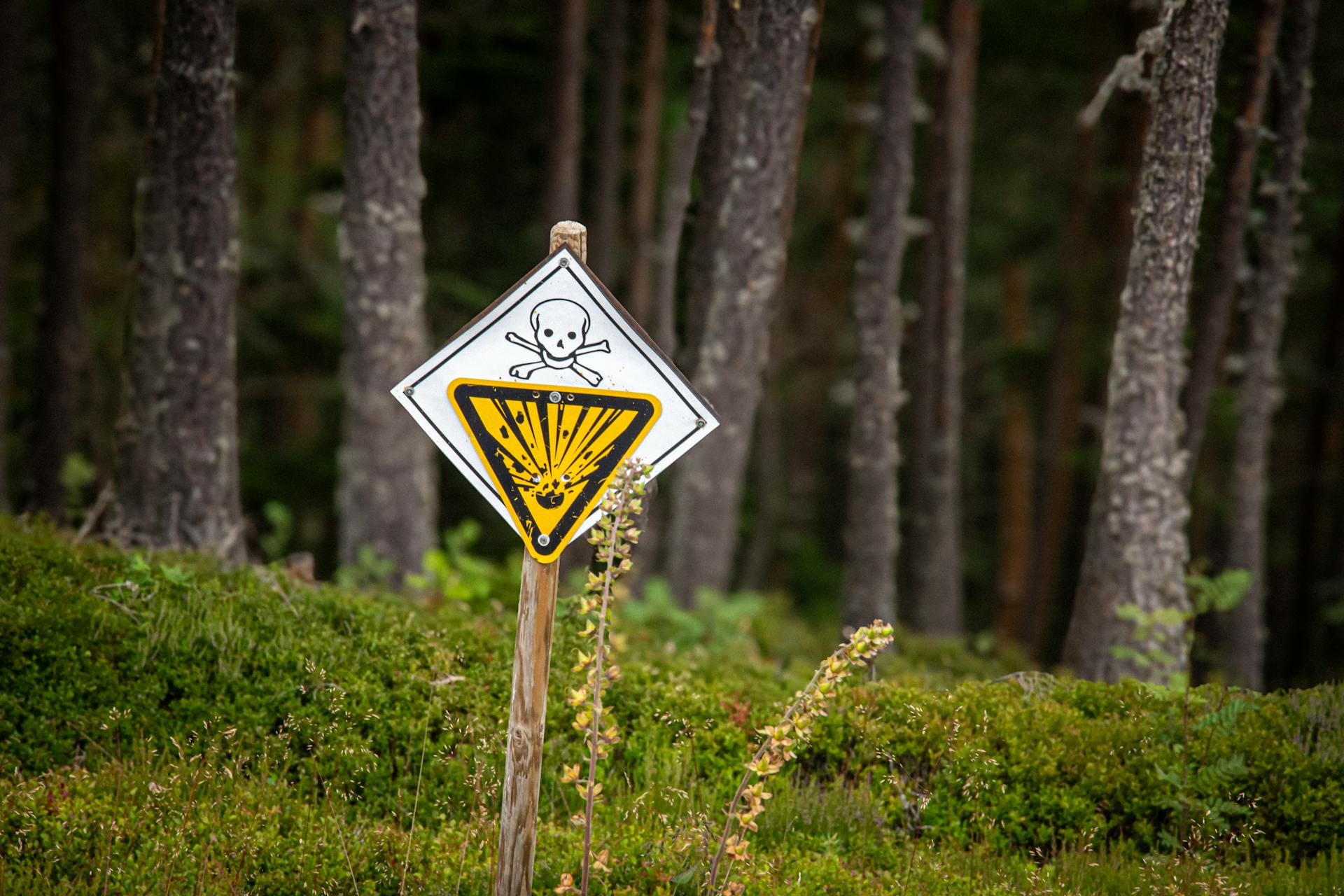
Dogs are naturally curious, and it's not uncommon for them to investigate potential prey, like rats.
One bite of rat poison can be fatal to dogs, and even small amounts can cause severe symptoms.
If your dog eats just one bite of rat poison, it's essential to act quickly.
The average time it takes for symptoms to appear after ingestion is 30 minutes to 12 hours, but this can vary depending on the type of poison and the amount consumed.
If you suspect your dog has ingested rat poison, call your vet or a pet poison hotline immediately.
What to Do If Your Dog Eats Something
If your dog eats rat poison, don't wait to see if they'll be okay - call a pet poison helpline or your local emergency vet right away. They can give you specific information about the next steps after taking a history and estimating the dose of rat poison your pup ingested.
The type of rat poison your dog ate is crucial in determining the best course of treatment. For example, if your dog eats an anticoagulant rodenticide, your vet may need to treat them with vitamin K1 or even a blood transfusion in severe cases.
Even if your dog successfully vomits up the rat poison, take them to the vet as soon as possible. Your vet will check your dog for symptoms of poisoning, do blood work, and administer drugs to counteract the specific type of bait eaten.
The amount of time it takes for your dog to show signs of rat poison varies by the type of rodenticide and the amount ingested. Some types, like bromethalin, can have a delay of a few days before clinical signs are seen.
Here are some key steps to take if your dog eats rat poison:
- Call a pet poison helpline or your local emergency vet immediately.
- Take your dog to the emergency vet, especially if they're showing signs of poisoning.
- Get your dog to vomit up the rat poison if possible, but don't rely on this as the only solution.
- Get your dog to the vet as soon as possible for further treatment and blood work.
Prompt treatment is key in preventing severe toxicity signs. If you can't get the label of the type of poison your dog got into, clinical signs, blood tests, and other methods can help your vet determine the best course of treatment.
A different take: Dog Flea Treatment Overdose Symptoms
Types of Poison
There are three main types of rat poison that can be toxic to dogs. Anticoagulant rodenticides are the most common type, and they work by preventing blood clotting.
These types of poisons can be further divided into two generations: first-generation and second-generation anticoagulants. First-generation anticoagulants include chlorophacinone, diphacinone, pindone, and warfarin, while second-generation anticoagulants include brodifacoum, bromadiolone, difenacoum, and difethialone.
Symptoms of anticoagulant poisoning in dogs can appear as early as three to seven days after ingestion and may include low energy, pale gums, vomiting blood, difficulty breathing, and bleeding gums.
You might like: Types of Dog Bite Wounds
Anticoagulants
Anticoagulants are a type of poison that can be found in rat and mouse poison. These toxins prevent your pet's body from synthesizing vitamin K, a crucial compound that allows the body to clot blood properly.
Common names for anticoagulant toxins include D-Con, Warf, and Prolin, but they have scientific names like warfarin, bromadialone, and indanedione. These toxins can cause your pet to bleed inside its body, and the bleeding can even be seen outside of the body.
You might enjoy: One Blue Eye One Brown Eye Dog Names
Clinical signs of anticoagulant poisoning include bleeding from the nose, blood in vomit, bleeding from the rectum, coughing, easy bruising, pale mucous membranes, and even lameness as blood fills within joints.
Bleeding caused by anticoagulants is very hard to control by normal first-aid techniques. In fact, it might not manifest for days or weeks after the animal first eats the toxin, making it even more difficult to treat.
If caught early, treatment can be much cheaper and effective. Your veterinarian or a poison control center will prescribe vitamin K1 supplementation, induced vomiting, and activated charcoal to decrease absorption.
However, if you don't know your pet has been poisoned until it starts showing symptoms like bleeding and bruises, your pet will likely need to be hospitalized for 24 to 48 hours. This isn't just more difficult, it's much more expensive.
Here are some common signs of anticoagulant poisoning:
- Lethargy
- Exercise intolerance
- Coughing
- Difficulty breathing
- Weakness
- Pale gums
- Vomiting
- Diarrhea (with or without blood)
- Nose bleeds
- Bruising
- Bloody urine
- Swollen joints
- Inappetance
- Bleeding from the gums
It's worth noting that the age and health of the dog may be another factor determining whether or not the amount ingested will be poisonous. Dogs with underlying liver or gastro-intestinal disease, as well as the very young or very old, are more at risk.
Bromethalin
Bromethalin is a type of rat poison that can be particularly hazardous to pets, especially cats. It causes swelling in the brain.
Symptoms of bromethalin ingestion can appear within 24 hours of ingestion, or one to three days later, depending on the dose. These symptoms can be severe, including seizures, trembling, ataxia, and paralysis.
If you suspect your dog has ingested bromethalin, it's crucial to get them to a vet immediately. The sooner treatment begins, the better their chances of recovery.
Here are the symptoms of bromethalin ingestion:
- Seizures
- Trembling
- Ataxia
- Paralysis
Dogs have the best chance at recovery if they are treated before symptoms begin.
Zinc/Aluminum Phosphides
Zinc/aluminum phosphides are a type of poison that can be found in rat baits, but also in other areas where rodents frequent.
This type of poison creates gases that can be extremely dangerous if inhaled. If your dog ingests zinc/aluminum phosphide, it's crucial to keep the windows open in your house or car to prevent lung damage from the fumes in their vomit.
Symptoms of zinc/aluminum phosphide ingestion include gas and bloating, vomiting, liver damage, seizures, and shock.
The effects of this poison are immediate, and toxicity is more rapid if the stomach is full.
If you suspect your dog has ingested zinc/aluminum phosphide, never feed them, as this can exacerbate the situation.
Signs and Symptoms
Anticoagulants can take 3-5 days to show signs of internal bleeding, which may include lethargy, pale gums, exercise intolerance, difficulty breathing, weakness, and spontaneous bleeding.
If your dog ate rat poison, don't wait for symptoms to appear - get them to the vet as soon as possible. Dr. Stephanie Howell, DVM, stresses the importance of not waiting.
Bromethalin can show effects within 2 hours if your dog got a large dose, or up to 36 hours if they got a small dose, causing incoordination, seizures, or tremors.
Cholecalciferol can take 2-3 days to show signs of kidney failure, which may include increased drinking and urinating, decreased appetite, weakness, and bad breath.
Take a look at this: Poison Dog Signs
Zinc and aluminum phosphide cause signs within 24-48 hours, which may include bloating, stomach pain, vomiting, seizures, and collapse.
Here's a breakdown of the types of rat poison and their corresponding symptoms:
Remember, even if your dog doesn't show symptoms right away, it doesn't mean they'll be okay without treatment. Dr. Howell recommends consulting a pet poison hotline or getting your dog seen by a vet as soon as possible.
Treatment and Prognosis
If your dog eats just one bite of rat poison, prompt treatment is crucial to prevent severe toxicity signs. Each type of rat poison has a different mechanism of toxicity, and knowing the type consumed is essential for proper treatment.
The type of treatment your dog needs depends on the type of rat poison they ate. For example, if your dog eats an anticoagulant rodenticide, your vet may need to treat them with vitamin K1 or even a blood transfusion in severe cases.
Consider reading: Dog Rat Poison Treatment
If your dog eats LAACS type bait, the prognosis is usually good, and treatment typically involves vitamin K. However, some dogs can have allergic reactions to vitamin K shots, so it's essential to monitor for signs of an allergic reaction.
In severe cases, multiple lab tests may be needed to check kidney function for up to six weeks after the incident, which can lead to high vet bills and tough decisions.
Quick action on your part is your dog's best chance of avoiding long-term damage or even death. If caught and treated early, most dogs can make a successful recovery after eating rat poison.
Here's a breakdown of the treatment options and outcomes for different types of rat poison:
Even if your dog successfully vomits up the rat poison, it's essential to take them to the vet as soon as possible for further treatment and monitoring.
Prevention and Alternatives
Prevention is key when it comes to keeping your dog safe from rat poison. Know what dangers lurk in the places your dog can access, especially if you live in an area where people use bait stations to poison rodents.
Be aware of pest control and talk to the technicians (or your landlord) so you know exactly when and where pest control is happening. Control your dog's environment by walking them on a leash near potential poison sources.
If you do have to deal with pest problems, consider alternatives to poison. Snap traps and live catch traps are safer for your dog and more humane than poisons. These alternatives can be just as effective and much safer for your dog.
Here are some steps to prevent rat poisoning in dogs:
- Control your dog’s environment.
- Be aware of pest control.
- Keep rat poison (and all toxicants) out of reach.
By taking these simple steps, you can help keep your dog safe from rat poison and reduce the risk of an emergency vet visit.
Preventing
Preventing rat poisoning in dogs is crucial, and it starts with being aware of your surroundings. Control your dog's environment by knowing what dangers lurk in the places they can access.
If you live in an area where people use bait stations to poison rodents, always walk your dog on a leash so they can't get near the poison. This simple step can save your dog's life.
For your interest: What Is the Purpose of Biting a Dog's Ear?
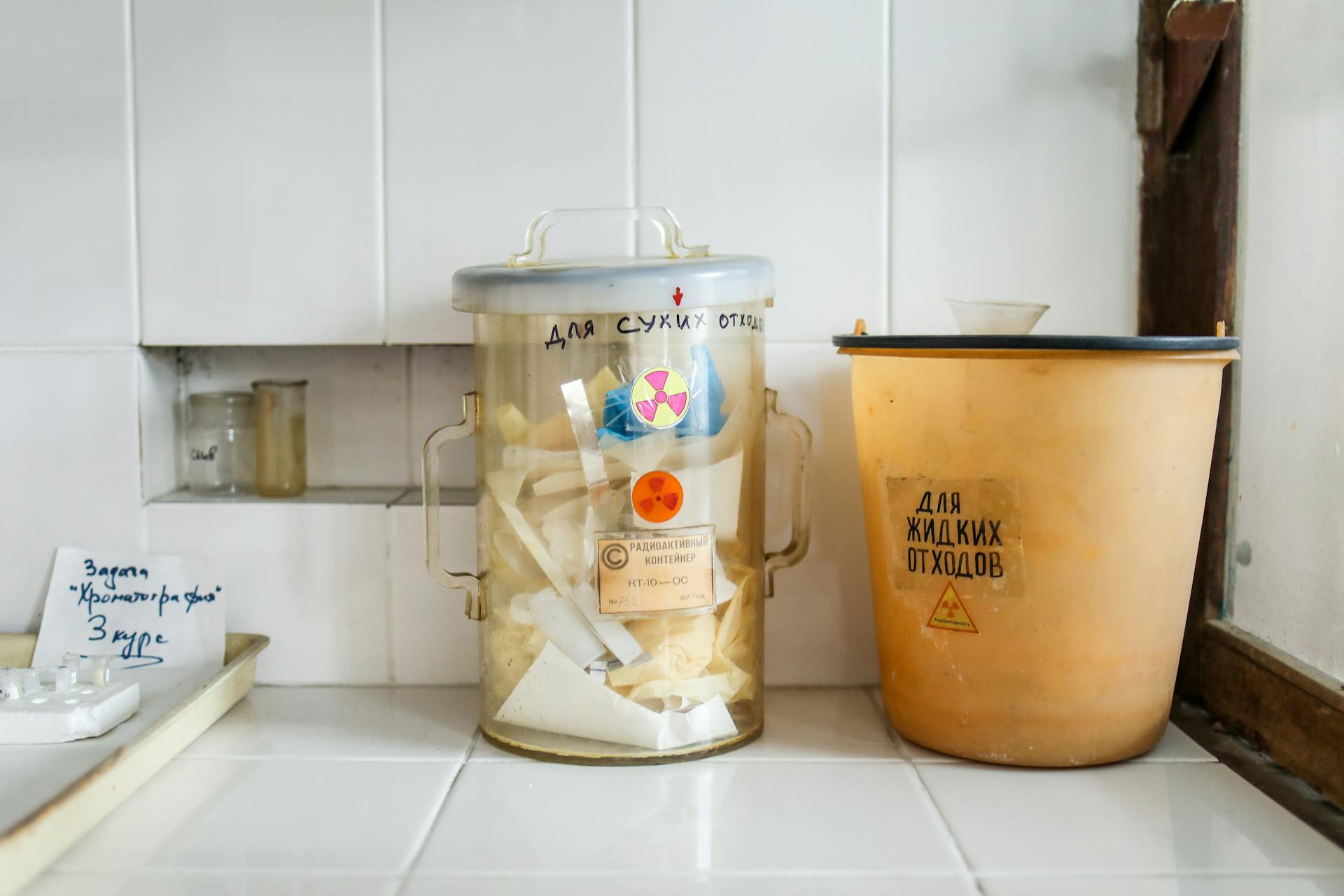
Be aware of pest control schedules and where they're used. Talk to the technicians or your landlord so you know exactly when and where pest control is happening.
Keep rat poison and all toxicants out of reach by storing them in a safe place where your dog can't access them. This might mean moving toxicants to a high shelf or a locked cabinet.
By following these simple steps, you can significantly reduce the risk of rat poisoning in your dog.
Take a look at this: Can I Call Poison Control for My Dog
Alternatives
Snap traps are a safer alternative to rat bait for protecting your four-legged friend.
These humane traps can be just as effective as poisons in getting rid of unwanted rodents.
Live catch traps are another option that can help you deal with pest problems without putting your dog at risk.
One of the best ways to keep your dog safe from rat bait is to simply not use it.
It's worth noting that rat bait is not only a danger to dogs, but it's also inhumane.
You might enjoy: Training Your Dog Not to Bite
Frequently Asked Questions
Is just one bite rat poison safe for dogs?
No, one bite of rat poison is not safe for dogs. In fact, even a small amount can be toxic and potentially fatal to dogs, so keep all rat poison out of reach of pets.
What to do if my dog ate one bite of rat poison?
If your dog ingests rat poison, call your veterinarian immediately for guidance and treatment. Prompt action can help minimize the risk of serious harm or even death.
Sources
- https://emergency-vets.com/topics/emergency-situations/household-toxicities-2/
- https://www.petpoisonhelpline.com/pet-safety-tips/mouse-and-rat-poison-rodenticides-poisonous-to-dogs-cats/
- https://be.chewy.com/dog-ate-rat-poison/
- https://www.dogster.com/ask-the-vet/dog-ate-rat-poison
- https://yourdogadvisor.com/dog-ate-rat-poison/
Featured Images: pexels.com
